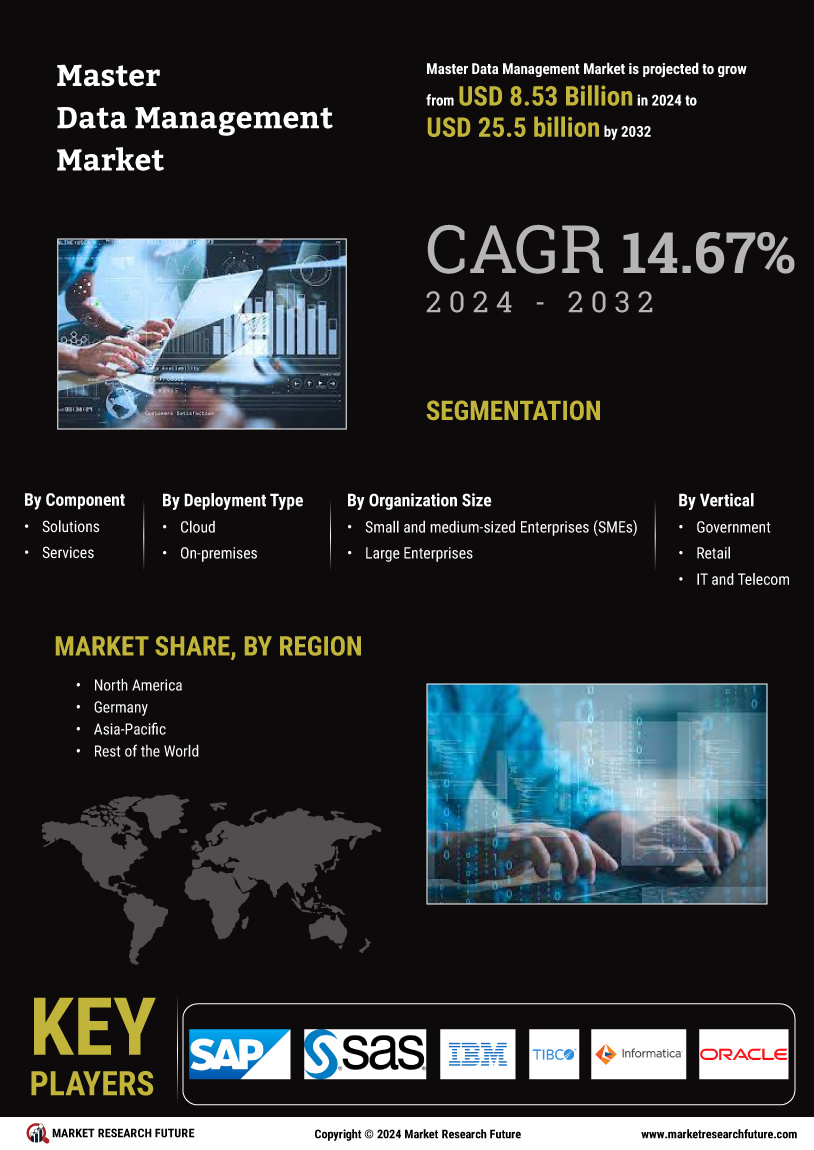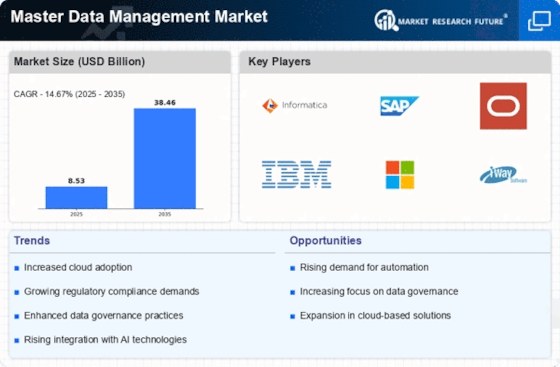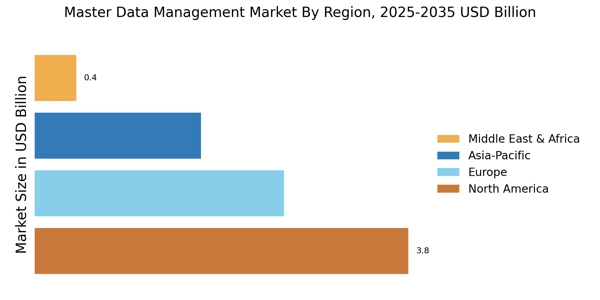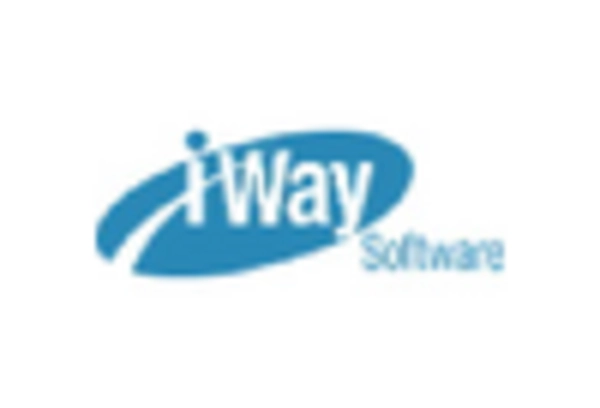The Master Data Management Market is currently experiencing a transformative phase, driven by the increasing need for organizations to maintain accurate and consistent data across various platforms. As businesses expand and diversify, the complexity of managing data grows, necessitating robust solutions that can streamline processes and enhance data quality. This market appears to be influenced by advancements in technology, particularly in artificial intelligence and machine learning, which facilitate better data integration and governance.
Furthermore, the rising emphasis on regulatory compliance and data privacy is prompting organizations to invest in Master Data Management Market solutions to mitigate risks associated with data breaches and inaccuracies. In addition, the growing trend of digital transformation across industries is likely to propel the demand for Master Data Management Market solutions. Companies are recognizing the value of having a single, authoritative source of truth for their data, which can lead to improved decision-making and operational efficiency.
As organizations continue to navigate the complexities of data management, the Master Data Management Market is poised for significant growth, with innovative solutions emerging to address the evolving needs of businesses. The focus on enhancing customer experiences through personalized data insights further underscores the importance of effective data management strategies in today's competitive landscape. Master data management systems enable organizations to maintain a single, consistent source of truth across enterprise applications, improving data accuracy and governance.
The adoption of cloud master data management solutions is accelerating as organizations seek scalable, cost-effective platforms with real-time data accessibility. MDM on premise solutions remain relevant for highly regulated industries that require strict control over sensitive enterprise data. The global master data management market is expanding steadily as enterprises prioritize data consistency across international operations. In the master data management healthcare industry, MDM solutions play a vital role in managing patient records, clinical data, and regulatory compliance.
Integration of Artificial Intelligence
The integration of artificial intelligence into Master Data Management Market solutions is becoming increasingly prevalent. AI technologies enhance data processing capabilities, enabling organizations to automate data cleansing, validation, and enrichment processes. This trend suggests that businesses can achieve higher accuracy and efficiency in managing their data assets. The convergence of MDM and big data analytics is enabling organizations to extract deeper insights from large, complex datasets. MDM in e-commerce supports accurate product information management, personalized customer experiences, and seamless omnichannel operations. Many organizations choose to outsource data management services to reduce operational complexity and accelerate MDM implementation. According to recent MDM research, enterprises adopting centralized data governance frameworks report improved operational efficiency. This data management report provides a comprehensive analysis of market trends, growth drivers, and competitive dynamics. The expansion of the broader data management market size reflects rising enterprise investments in data governance and analytics.
Emphasis on Data Governance
There is a growing emphasis on data governance within the Master Data Management Market. Organizations are recognizing the necessity of establishing clear policies and procedures for data management to ensure compliance with regulations and maintain data integrity. This trend indicates a shift towards more structured approaches to data oversight.
Focus on Customer-Centric Solutions
The focus on customer-centric solutions is shaping the Master Data Management Market. Companies are increasingly prioritizing the creation of personalized experiences for their customers, which requires a comprehensive understanding of customer data. This trend highlights the importance of leveraging Master Data Management Market to enhance customer engagement and satisfaction.

















